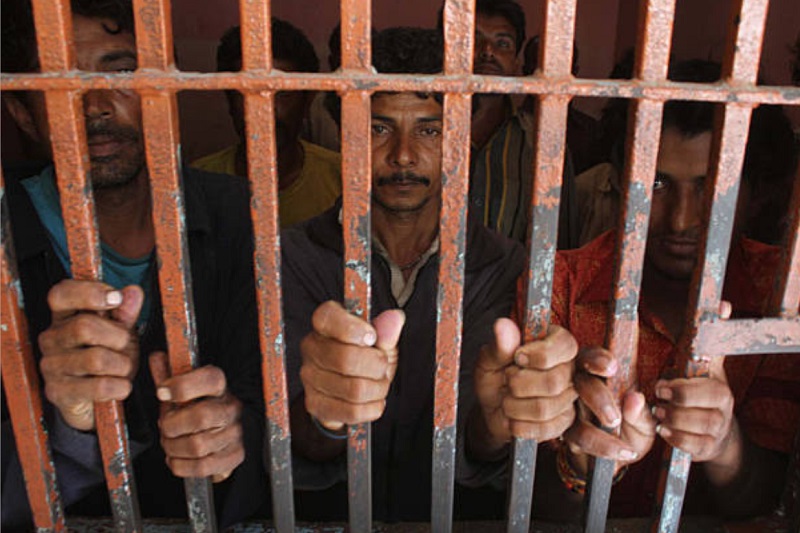- Web Desk
- Feb 24, 2026
Thousands of Pakistani nationals imprisoned abroad
-

- Web Desk Abobakar Khan
- Feb 21, 2024

ISLAMABAD: The Ministry of Foreign Affairs revealed that about 23,456 Pakistani nationals are currently incarcerated in prisons abroad, in a report to Senate Standing Committee on Human Rights on Tuesday.
The report was presented by the foreign ministry officials to the human rights committee in which it was revealed that Pakistani citizens are imprisoned in over 72 different countries across the globe.
Among these individuals, 15,587 have been convicted, while 7,869 are still awaiting trial. The highest concentration of prisoners are languishing in jails in the Gulf countries.
Saudi Arabia tops the list with 12,156 Pakistani prisoners, followed by the UAE with 5,292, Qatar with 338, Iraq with 519, and Bahrain with 450 detainees.
Read more: KP govt allows prisoners to open bank accounts
A considerable portion of these detainees migrated to Saudi Arabia for employment opportunities, with over 2.1 million Pakistanis currently residing in the country.
The committee was informed that Pakistan has entered into prisoner-exchange agreements with ten nation-states, including Azerbaijan, Iran, and China. Meanwhile, the agreement with Türkiye is yet to be finalised.
Under the prisoner-exchange agreement, convicts imprisoned abroad have the option to serve their sentences in Pakistan rather than overseas prisons.
Committee Chairman Walid Iqbal said that while such agreements are typically made between governments, their purpose is to benefit citizens. He lamented the lack of awareness amongst citizens about their own rights.
The committee unanimously agreed on the importance of transparency in such matters. They directed officials from relevant ministries including Ministry of Foreign Affairs, Ministry of Interior and the Ministry of Overseas Pakistanis and Human Resource Development (MOPHRD) to make this information readily accessible on official platform.
This measure aims to facilitate easy access and utilisation of these resources by human rights advocates, legal professionals, and the families of incarcerated individuals.




